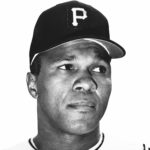Mike Colbern, the former Chicago White Sox catcher, recently passed away. Colbern, 63, who excelled on the baseball diamond at Arizona State University (ASU), never quite realized the potential that he displayed in college. Over the span of two seasons with the White Sox, he played in only 80 games, going 58 for 224 (for a lifetime batting average of .259).
Colbern’s baseball celebrity comes from the fact that he was one of the three lead plaintiffs in a famous 2003 lawsuit that charged Major League Baseball (MLB) with, among other things, gross negligence, suggesting that major league team doctors between 1947 and 1979 knew that giving players repeated injections of cortisone was risky but that, in spite of such knowledge, the ballplayers were never warned of the potential long-lasting consequences to their health.
The suit also alleged that the league violated the Title VII rights of these men because veterans of the Negro Leagues were given monies by the MLB. That white players who had played similar lengths of time in the big leagues had not received the same monies. Title VII of the Civil Rights Act of 1964 specifically prohibits employment discrimination based on race, color, religion, sex, or national origin.
The union representing current players, the Major League Baseball Players’ Association (MLBPA), and the league partially remedied this situation in April 2011. The pre-1980 players alive at the time were each awarded non-qualified payments of $625 for every 43 game days of service the man had, up to $10,000. However, when the man passes, the payment passed with him.
So none of Colbern’s family members are getting the monies he was awarded eight years ago. According to numerous sources, his family hasn’t publicly revealed the cause of his death either.
I spoke extensively with Colbern during the summer of 2009 while doing research for my 2010 book about this issue. At the time, he said he was taking 17 different medications each day, none of which were painkillers, and freely acknowledged seeing a psychologist on a weekly basis. He also admitted one of the drugs he took was to control his bipolar disorder.
When I interviewed him, Colbern said the weight of the catcher’s mask he wore caused him so much pain that doctors had to remove collagen from his vertebrae in 2001 to ease the pressure on his spine. He had three bulging discs that had to be fused to give his neck greater mobility.
But it was Colbern’s contention that baseball doctors were administering illegal drugs to him that fascinated me the most.
Colbern says it was all the cortisone he was given and Butazolidin that was injected into him during his playing days that really messed him up. “They never kept medical records in order to keep us playing,” he said.
A non-steroidal anti-inflammatory drug, Butazolidin made headlines in 1960 when it was rumored that the winner of the Kentucky Derby got a serious leg up on its competition when the drug was administered to the horse by its trainer.
“I’ve been on stomach meds for nearly three decades,” he said in August 2009, referring to all the Butazolidin he supposedly received from team trainers and doctors. “I’ve got a hiatal hernia. And I just had an endoscopy to test that I don’t have Barrett’s esophagus, which is a cancer of the esophagus.”
Of all of Colbern’s claims, the one that is perhaps the most disconcerting is that there’s a proven link between Butazolidin and cancer and that MLB did not do enough to safeguard the players’ interests when team trainers were administering these shots to them.
“The owners were like pushers,” he says. “They used us and abused us.”
Colbern graduated from ASU with a degree in criminal justice, which he said he studied because his father used to work in law enforcement. That background in criminal justice, he told me, was the reason he always sought justice for people.
Let’s hope the peace that eluded Mike Colbern in life has finally been accorded him in death. And let’s also hope that, with his death, the league and the players’ union finally decide to remedy this egregious injustice once and for all.
Author Profile
Latest entries
 MLBDecember 14, 2022A Tale of Two Wyomingites
MLBDecember 14, 2022A Tale of Two Wyomingites MLBJuly 2, 2022Asking for Accountability From a POC Isn’t Bigotry
MLBJuly 2, 2022Asking for Accountability From a POC Isn’t Bigotry MLBFebruary 5, 2022A Valentine’s Appeal to Tony Clark, Executive Director, Major League Baseball Players’ Association
MLBFebruary 5, 2022A Valentine’s Appeal to Tony Clark, Executive Director, Major League Baseball Players’ Association MLBJanuary 19, 2022MLB: Pre-1980 Players Without a Pension List Now Stands at 525
MLBJanuary 19, 2022MLB: Pre-1980 Players Without a Pension List Now Stands at 525

